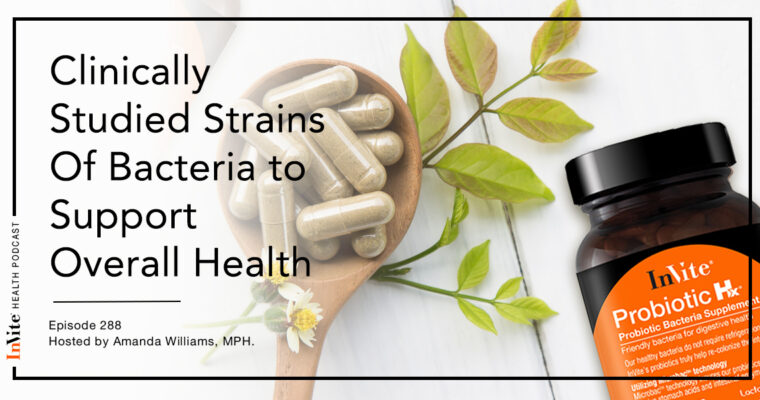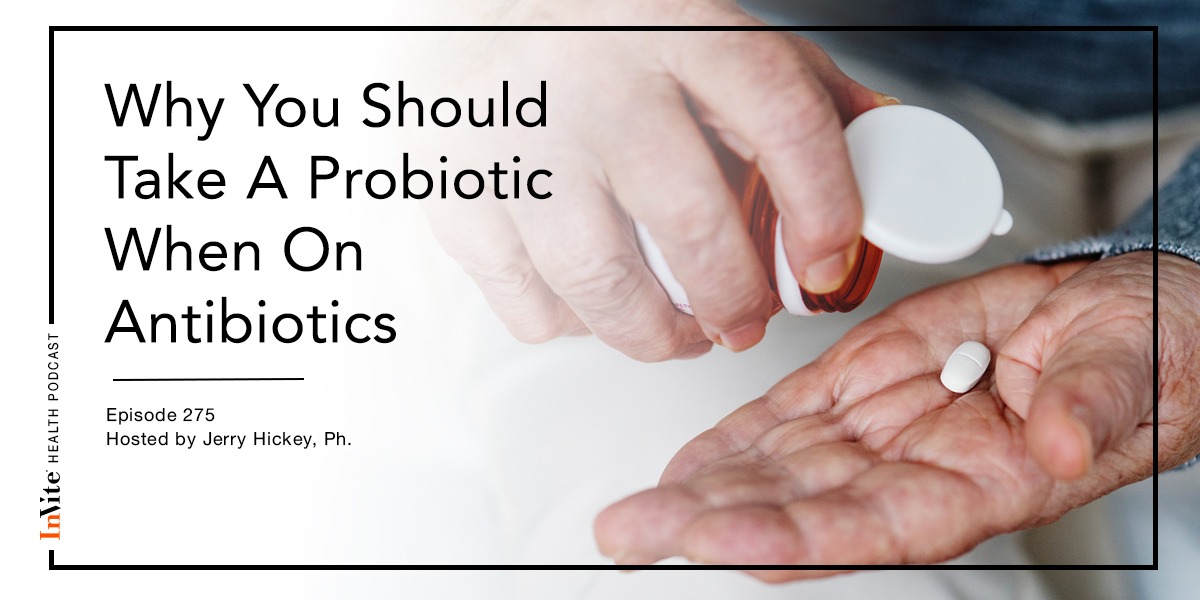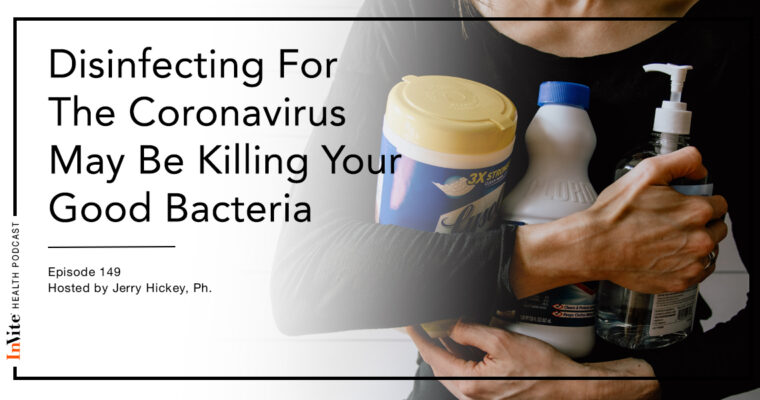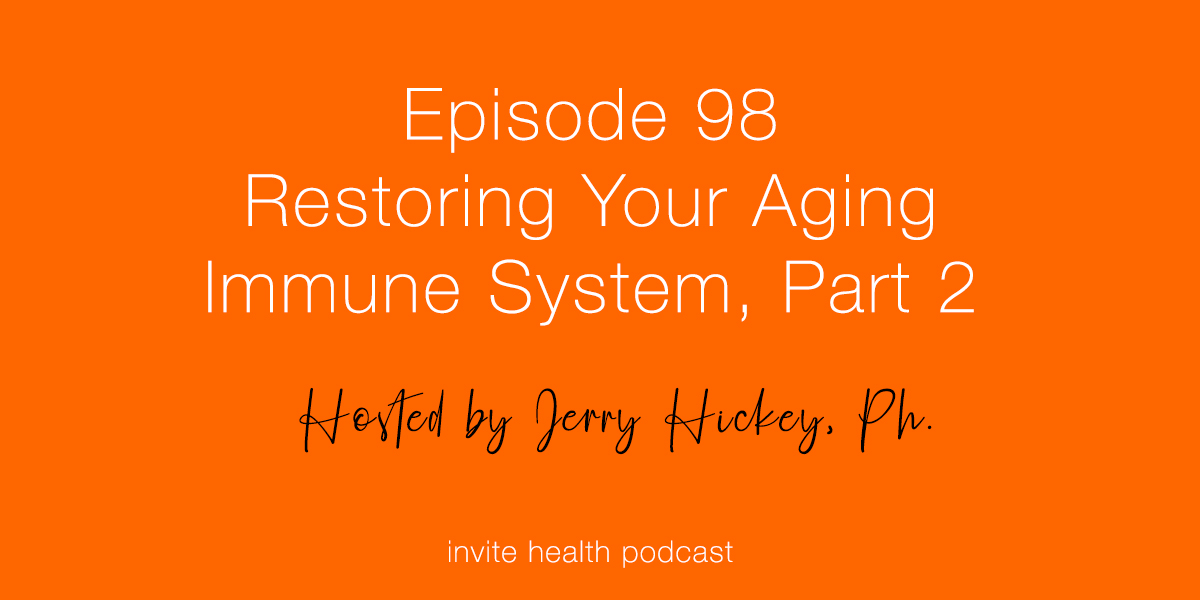Antibiotics
Invite Health Podcast, Episode hosted by Jerry Hickey. Ph
Subscribe Today!
Antibiotics save lives. There’s no doubt about it. Antibiotics are drugs used to treat infections. But there are some issues with antibiotics. There are some side effects and toxicities that occur, many of them largely due to reducing the number of healthy bacteria in your intestines.
Bacteria and antibiotics
You have trillions of bacteria living with you. They vastly outnumber your own human cells. There are viruses, yeast bacteria and a whole zoo full of other bacteria living with you. Some of them are incredibly healthy and some of them are incredibly dangerous. However, when you have a balance and there’s enough of the healthy bacteria with certain strains and species involved, they help prevent the bad bacteria from acting out.†
When you take many antibiotics, they have what’s called a broad spectrum of activity. They kill many bacteria. Hopefully, they’ll kill the infection that they’re intended to kill, but that doesn’t always happen. However, they frequently kill off your good bacteria and what’s leftover can be really tough, dangerous bacteria, especially one called Clostridium difficile. It’s a very common cause of diarrhea in people who have used antibiotics, but it can also cause a severe form of colitis, which is severe inflammation of the lining of the colon that, in some people, will be terminal.†
The Unspoken Danger Of Prescription Medication On Important Nutrients – InVite Health Podcast, Episode 262. Listen Now >>
Study after study shows that when you use a high-quality probiotic, it helps prevent this problem with Clostridium difficile, which is a very common problem. Clostridium difficile can cause such severe inflammation in the intestines and specifically in the colon, that they actually have to remove part of the damaged colon.†

When an antibiotic kills off all your friendly bacteria and there’s just some nasty strains leftover, that’s a situation called dysbiosis. This means that you’ve shifted and damaged the balance of bacteria in your intestines. A lot of the leftover bacteria release toxins that inflame the intestines and lead to a condition called leaky gut syndrome. The lining of your intestines is supposed to be a really good barrier to keep things in the intestines from getting into the bloodstream. However, when there are certain strains of bacteria that release toxins that inflame the lining of the intestines, that lining is very thin and it becomes leaky, so now things that shouldn’t leave the intestines are exiting and getting into the bloodstream. This is dangerous. This leaky gut syndrome has been linked to certain autoimmune diseases, cancers and many other ill effects.†
How to help your intestines
There are a number of things that heal your intestines, but healthy bacteria and a good diet alone can heal your intestines. I always tell people to cater to your good bacteria in three ways.
Number one is a good diet. Healthy bacteria live on the ingredients in many fruits, vegetables and foods, like whole grains, cocoa and legumes. If you give sufficient supply of these foods, there are nutrients in them that will feed the good bacteria. Typically, this includes any good source of fiber, like green leafy vegetables, nuts, seeds, salads and vegetables. Plus, the good bacteria can change things in the food that then go onto protect you from viruses, certain cancers, heart disease, mental deterioration, etc.†
DISINFECTING FOR THE CORONAVIRUS MAY BE KILLING YOUR GOOD BACTERIA – INVITE HEALTH PODCAST, EPISODE 149. Listen Now >>
A second way, and kind of a step up, is having fermented foods, like kefir, yogurt, tempeh, miso and natto. These foods give you bacteria.†
The next step up is the most powerful step you can take. This is if you choose certain probiotic strains that can amazingly improve your digestive health. If you’re going to take a probiotic supplement, you want to get a probiotic with at least two different bacteria and you want at least a billion of each. It would be good if there was a little food for the bacteria in there. They call this a prebiotic and it might be called chicory or fructooligosaccharides (FOS). That makes the probiotic bacteria more successful at culturing and growing in number, leading to better health.†
Tune into the full podcast episode for more details on the relationship between antibiotics and the digestive system.
Thank you for tuning in to the Invite Health Podcast. You can find all of our episodes for free wherever you listen to podcasts or by visiting www.invitehealth.com/podcast. Make sure you subscribe and leave us a review! Follow us on Facebook, Twitter and Instagram at Invite Health today. We’ll see you next time on another episode of the Invite Health Podcast.












